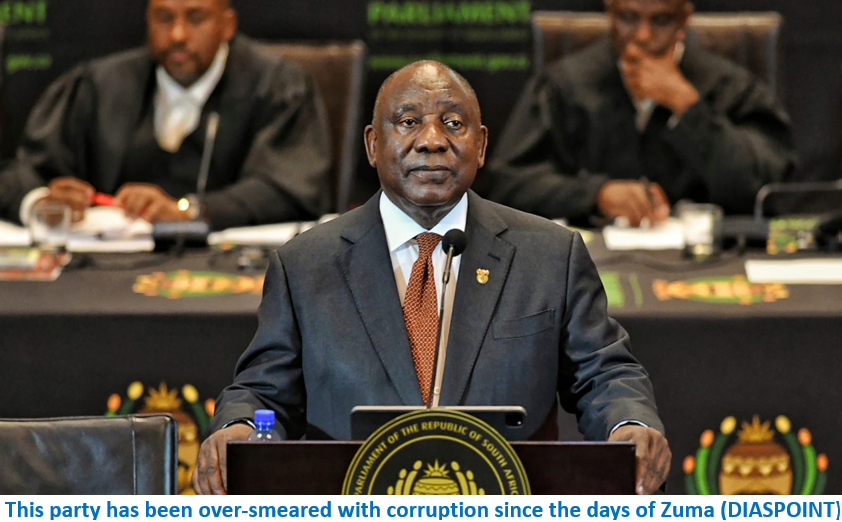South Africa’s ruling party marks its 112th an-niversary ahead of a tough election year
Post By Diaspoint | January 16, 2024

South Africa’s ruling African National Congress party will celebrate Saturday the 112th anniversary of its establishment ahead of national elections, expected to be the toughest since it came to power in 1994.
Thousands of party members and supporters are expected to convene in Mbombela Stadium in the Mpumalanga province where President Cyril Ramaphosa, also the head of ANC, will deliver his annual address and outline the party’s program for the year.
The ANC is the party of South Africa’s first democratically-elected president and anti-apartheid leader Nelson Mandela. It was at the forefront of the country’s liberation struggle against racial segregation and the white minority government.
Ramaphosa is seeking a second term in this year’s elections after coming to power in 2019, succeeding Jacob Zuma.
The ANC has been facing widespread criticism for failing to deliver basic services to millions of the country’s poor Black majority amid deteriorating economic conditions. With an unemployment rate of around 32% — of which 60% are young people — the party is set to face a disillusioned electorate that is running out of patience with unfulfilled promises of a better life.
Some election polls suggested the party may struggle to gain more than 50% of the electoral vote, needed to clinch the win, for the first time in its 30-year reign.
The ruling party’s reputation has also taken a hit due to various allegations of corruption over the years, with many of its leaders implicated in shady government deals.
Added to the economic challenges, South Africans regularly suffer from power blackouts as Eskom, the country’s main energy supplier, has been failing to supply millions of households and companies with uninterrupted electricity.
Political analyst at the University of South Africa, Dirk Kotze, told The Associated Press that the ANC’s biggest threat was not from the opposition gaining more support, but “from the fact that people do not want to vote for them because of the distrust that has developed in the ANC.”
Read More from original source
